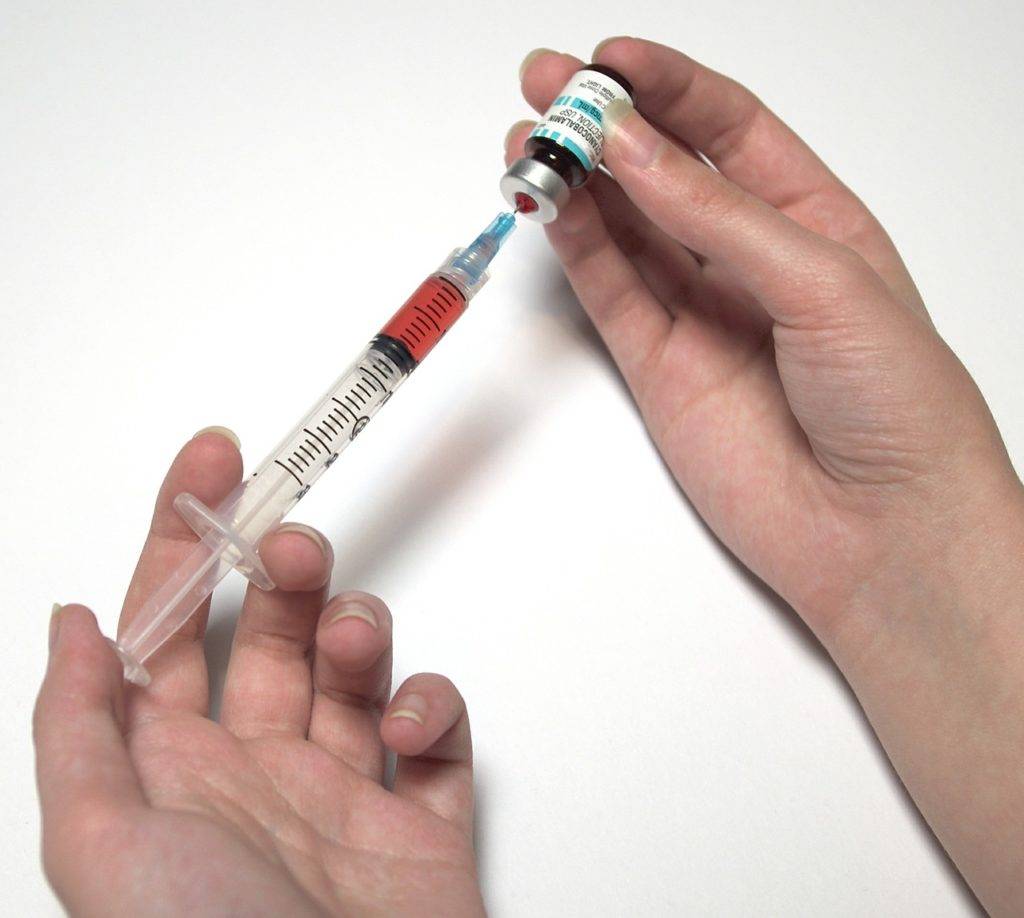Hepatitis B is a serious infection caused by the hepatitis B virus (HBV) that affects the liver. The transmission is through contact with an infected person’s blood or bodily fluids. It can also be transmitted through sexual contact, sharing needles or other drug injection equipment, or from an infected mother to her baby during childbirth.
Thanks to the medical breakthrough of the hepatitis B vaccine. It has proven to be remarkably effective for protection against hepatitis B. It’s important because it helps prevent HBV infection and its serious complications.
It can lead to chronic disease and put people at high risk of death from cirrhosis of the liver and liver cancer. Hepatitis B is the leading cause of liver cancer worldwide.
Despite the availability of a safe and effective vaccine, hepatitis B remains a significant global health problem. In this blog post, we will explore the importance of the hepatitis B vaccine, its benefits, and the recommended schedule for children to receive this crucial immunization.
Understanding Hepatitis B

Hepatitis B is a potentially life-threatening liver infection caused by the hepatitis B virus, leading to acute and chronic diseases. The virus is transmitted through contact with infectious body fluids, such as blood, semen, and vaginal fluids.
This occurs through sexual contact, sharing needles, syringes, or other drug-injection equipment, and from mother to baby at birth. The acute form causes symptoms like fever, fatigue, loss of appetite, nausea, vomiting, abdominal pain, dark urine, joint pain, and jaundice (yellowing of the skin and eyes).
While some individuals recover from the acute infection, others develop chronic hepatitis B, leading to long-term health issues like liver cirrhosis, liver failure, and liver cancer. This chronic illness is dangerous since it progresses without causing noticeable symptoms until significant liver damage has occurred.
The Importance of the Hepatitis B Vaccine
1. Prevention of Infection
The primary benefit of the vaccine is preventing HBV infection. The vaccine is highly effective, providing immunity in more than 95% of individuals who complete the vaccine series. By immunizing children early in life, we can protect them from the risk of acquiring HBV, especially in high-risk environments.
Studies have shown that the vaccine is 90% effective after the first dose and 99% effective after all three doses. The vaccine provides long-lasting protection and is effective for at least 20 years.
2. Protection Against Chronic Disease
Preventing HBV infection is crucial because it reduces the risk of developing chronic hepatitis B. Chronic HBV can lead to severe liver complications, including cirrhosis and hepatocellular carcinoma (liver cancer).
These conditions are often fatal or require extensive medical treatment, including liver transplants. The vaccine dramatically reduces the incidence of these chronic liver diseases.
3. Reducing Transmission
In addition to protecting individuals, the vaccine is important for public health and contributes to herd immunity. When a significant percentage of the population is vaccinated against a disease, it can help to prevent outbreaks.
The overall prevalence of the virus decreases, making it less likely for unvaccinated individuals to be exposed to HBV. These individuals cannot receive the vaccine due to underlying medical conditions or a compromised immune system.
This is particularly important in reducing mother-to-child transmission during childbirth, which is a major route of HBV infection.
4. Economic Benefits
Prevention through vaccination is cost-effective. Treating the chronic illness and its complications is expensive and resource-intensive. Vaccination reduces the financial burden on healthcare systems by preventing the need for long-term treatment and management of chronic liver diseases.
5. Global Health Impact
Hepatitis B is a global health issue, with significant prevalence in regions like Sub-Saharan Africa and East Asia. Vaccination helps to control and eliminate HBV as a public health threat. Achieving high vaccination coverage is essential to meeting global health goals and reducing the worldwide burden.
Hepatitis B Vaccination Schedule for Children
The hepatitis B vaccine is typically administered as a series of 3-4 shots, depending on the specific vaccine formulation and health authorities’ guidelines in different countries. Following the recommended schedule is important to ensure your child is fully protected against hepatitis B.
The following schedule is based on the World Health Organization (WHO) and the Centers for Disease Control and Prevention (CDC) guidelines.
Birth Dose (Within 24 Hours of Birth)
The first dose should be given within 24 hours of birth. This birth dose is critical in preventing mother-to-child transmission of HBV, which occurs during childbirth. Administering the vaccine early significantly reduces the risk of a newborn contracting the virus from an infected mother.
Second Dose (1-2 Months of Age)
The second dose is typically given at 1-2 months of age. This dose helps to boost the immune response initiated by the birth dose and ensures that the infant’s immune system is adequately primed to fight off HBV.
Third Dose (6-18 Months of Age)
The third dose is usually administered between 6-18 months of age. This timing varies based on the vaccination schedule recommended by local health authorities. The third dose completes the primary series and provides long-term immunity against HBV.
Combination Vaccines
In some cases, the vaccine may be administered as part of a combination vaccine that protects against multiple diseases, such as DTaP-HepB-IPV (diphtheria, tetanus, acellular pertussis, hepatitis B, and inactivated poliovirus). These combination vaccines are safe and effective, reducing the number of injections required during a single visit.
Special Considerations
Premature Infants

For premature infants (less than 2,000 grams or about 4.4 pounds), the dose timing may be adjusted. Premature infants should receive the birth dose if they are medically stable and weigh more than 2,000 grams. If they weigh less than 2,000 grams, the first dose should be given at 1 month of age or upon hospital discharge.
High-Risk Infants
Infants born to mothers who are hepatitis B surface antigen (HBsAg) positive are at high risk of infection. These infants should receive the hepatitis B vaccine and hepatitis B immune globulin (HBIG) within 12 hours of birth.
This combination provides immediate passive immunity and initiates active immunization, offering the best protection against mother-to-child transmission.
Catch-Up Vaccination
Children and adolescents who were not vaccinated according to the recommended schedule can still receive the hepatitis B vaccine as part of a catch-up vaccination program.
The CDC provides specific guidelines for catch-up vaccination, which vary based on the child’s age and vaccination history. Consult a healthcare provider to determine the appropriate catch-up schedule.
Addressing Common Concerns
Despite the benefits of the hepatitis B vaccine, some parents have concerns about vaccination. Addressing these concerns is crucial to maintaining high vaccination rates and protecting public health.
Vaccine Safety
The hepatitis B vaccine is one of the safest vaccines available. It has been used worldwide for over three decades and has an excellent safety record. Side effects are usually mild and temporary, including soreness at the injection site and mild fever. Severe allergic reactions are extremely rare.
Vaccine Ingredients
Some parents worry about the ingredients in vaccines. The hepatitis B vaccine contains a small amount of the viral antigen (hepatitis B surface antigen, HBsAg) and other standard vaccine components, such as aluminum, used as an adjuvant to enhance the immune response.
These ingredients have been extensively studied and are safe in the amounts used in vaccines.
Autism Concerns
There is no scientific evidence to support a link between the hepatitis B vaccine (or any vaccine) and autism. Numerous studies have shown that vaccines do not cause autism. The original study that suggested a link between vaccines and autism has been thoroughly discredited and retracted.
Schedule your Child’s Hepatitis B Vaccine

The hepatitis B vaccine is a critical tool in the fight against HBV infection and its severe consequences. By vaccinating children according to the schedule, we protect them from a potentially life-threatening virus, reduce the prevalence of chronic liver diseases, and contribute to global efforts to eliminate hepatitis B as a public health threat.
The vaccine is safe, effective, and cost-efficient, making it an essential component of childhood immunization programs. Parents should ensure that their children receive the hepatitis B vaccine at the recommended ages: the birth dose within 24 hours of birth, the second dose at 1-2 months, and the third dose at 6–18 months.
For those who miss these doses, catch-up vaccinations are available and effective. By prioritizing hepatitis B vaccination, we can safeguard the health of future generations and move closer to a world free of hepatitis B
Schedule your child’s hepatitis B vaccine with Omega Pediatrics, a well-established pediatric practice in Roswell, Georgia. Not only do they administer shots for your little one, but they also provide parent counseling and education to enlighten you more on other vaccines to protect your child from dreaded infections and diseases. Book an appointment with Omega Pediatrics.



